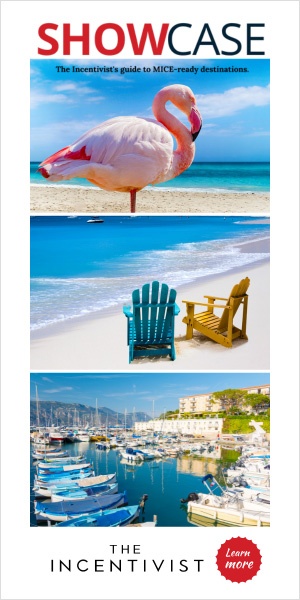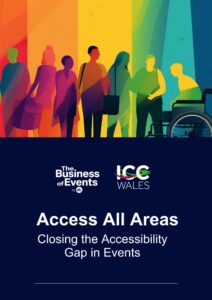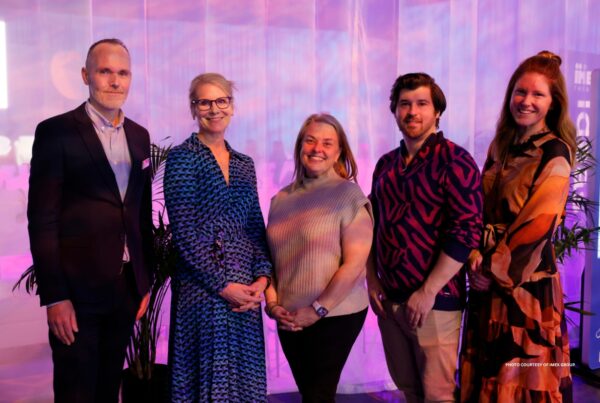Ninety-three percent of disabled delegates continue to encounter barriers when attending events, according to landmark research by The Business of Events and ICC Wales, supported by the All-Party Parliamentary Group (APPG) for Events.
Launched today at IBTM World 2025, the report – Access All Areas: Closing the Accessibility Gap in Events – reveals a striking disparity between how venues perceive their accessibility provision and how delegates truly experience it.
Drawing on insights from 1,000 delegates who have attended an event within the last six months, the research discovered that nearly one in three identified as having a visible or non-visible disability, and of those, 93 percent reported encountering barriers to participation.
These barriers included inaccessible layouts (28%); lack of accessible toilets (24%); untrained staff (25%); overstimulating environments (27%); and missing accessibility information (17%).
More than 100 venues were also surveyed. While 82% said they provide step-free access, 91% reported having accessible toilets, and 75% claimed their staff have disability awareness training, the findings suggest a disconnect between venue confidence and delegate experience. More than half (57%) of venues said they have a formal accessibility or inclusion policy in place.
However, cost remains a major point of contention. Nearly half (46%) of venues admitted they sometimes charge for accessibility adjustments such as gender-neutral toilets or ramped stages – a practice delegates overwhelmingly reject as discriminatory. Attendees regard accessibility as a fundamental right not an optional, paid-for extra.
Developed with the support of accessibility consultant Dr. Shani Dhanda (shown top of post), the research explores 12 themes, including policies and legislation, physical access, sensory needs, communication, training, and technology. Each reveals a consistent pattern: while venues often report confidence in their measures, delegates continue to face barriers limiting full participation. After each disconnect is explained, Dr. Dhanda provides recommendations for bridging the accessibility gap.
“This research deserves real applause – it’s not just a report, it’s a rallying cry for progress. The first of its kind, it shines a light on a truth we can no longer ignore – accessibility is still too often seen as optional, when in reality, it benefits everyone,” said Dr. Dhanda.
She added: “The findings call for bold, lasting change. The time for quick fixes and reactive adjustments is over. Accessibility must be woven into every stage of design and delivery. By listening to those with lived experiences, embedding inclusive thinking, and striving for continuous improvement, the UK events industry can set a global benchmark for true inclusion.”
The report also sets out ten clear industry recommendations and a pathway to compliance with the European Accessibility Act (EAA), which came into force in June 2025.
“Accessibility must sit at the heart of every event – and at ICC Wales, it genuinely does. We believe inclusive design should be a baseline expectation, not a bolt-on or a budget decision,” said Craig Bingham, managing director, ICC Wales. “From ensuring step-free access and gender-neutral facilities to embedding disability awareness training across our team, our approach is about removing barriers before they arise. We’ve worked closely with organisers to make sure every delegate can take part fully and comfortably – and the feedback we’ve received shows the real impact this makes. This report reinforces the urgency for collective action across the sector. True progress means moving beyond compliance and cost discussions, and towards a shared responsibility to make every event accessible by default.”
Mike Fletcher, director of News & Content at The Business of Events, said: “The data reveals a real disconnect between venue intent and delegate experience. By sharing these findings openly, we hope to spark collaboration across the sector and turn good intentions into meaningful change.”
Access All Areas: Closing the Accessibility Gap in Events is available for download at https://thebusinessofevents.co.uk/gateway-pages/access-all-areas/.










